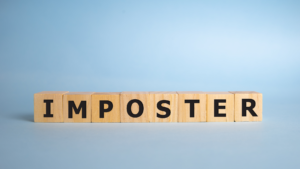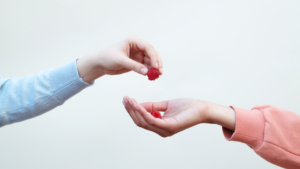There is no doubt that mental health is important for all genders; however, as a result of both biological and gender-related differences, women can suffer from certain mental health conditions at higher rates than men. Are you ok? Three words that can easily be tossed around or asked in passing, but until you are on the other end of the question, you may not know just how important those three little words can be.
Liptember is a fundraising campaign encouraging people to wear lipstick as a light-hearted way to raise awareness and vital funds for women’s mental health. Thanks to the Liptember Foundation’s first of its kind research, there is now up-to-date, gender-specific statistics. The five most prevalent mental health issues among Australian women in 2024 are:
- Depression (46%)
- Anxiety and generalised anxiety disorders (GAD) (41%)
- Body image issues (29%)
- Psychological distress (16%)
- Post-traumatic stress disorder (PTSD) (14%)
Domestic, family, and sexual violence has a profound and lasting impact on women’s mental health. 1 in 3 women are affected by domestic violence and 1 in 5 women by sexual abuse. 46% of those women don’t seek help or support and 2 in 5 women don’t know where to get help. The trauma experienced from such violence can lead to a range of mental health issues, including:
Post-traumatic stress disorder (PTSD): a common mental health condition among survivors of violence, characterised by flashbacks, nightmares, hypervigilance, and avoidance of triggers.
Depression: the emotional toll of violence can lead to feelings of hopelessness, sadness, and worthlessness.
Anxiety: survivors may experience excessive worry, fear, and panic attacks.
Substance abuse: as a coping mechanism, some women may turn to alcohol or drugs to numb the pain of their experiences.
It’s important to note that the effects of violence can vary widely, and not all survivors will experience the same symptoms. However, the trauma can be long-lasting and have a significant impact on a woman’s overall well-being. Healing from the trauma of domestic, family, and sexual violence is a process that takes time and patience.
Here are some strategies that can help survivors support their mental health:
Seek professional help: therapy can provide a safe space to process emotions, develop coping mechanisms, and address underlying trauma.
Connect with others and build a support network: joining support groups or connecting with other survivors can help reduce feelings of isolation and provide validation. Surround yourself with supportive friends, family, or mentors who can offer encouragement and understanding.
Adamas Nexus is a post-crisis support group for women survivors of domestic, family, and sexual violence. It is run online making it available Australia-wide enabling any survivors, including those in regional and rural communities, to join meetings. Attending a peer-based support group meeting helps with meeting the emotional, mental, social and self-care needs of survivors of domestic, family and sexual violence.
Engage in self-care: prioritise activities that promote relaxation, such as exercise, meditation, or spending time in nature.
Challenge negative thoughts: replace harmful beliefs with positive affirmations and practice mindfulness to stay present.
Set boundaries: establish healthy boundaries with others and learn to say no to things that are overwhelming or harmful.
Build a support network: surround yourself with supportive friends, family, or mentors who can offer encouragement and understanding.
It’s important to remember that healing is constant, and there may be setbacks along the way. Be patient with yourself and celebrate small victories.
If you or someone you know has or is experiencing domestic, family, or sexual violence, please reach out for help. And if you would like to support Adamas Nexus to deliver their online peer-based support group DONATE HERE. As little as $33 helps 1 woman attend 1 meeting.
There are many resources available to provide support and safety; here are some organisations that can help.
1800RESPECT 1800 737 732
The National Domestic Violence Hotline 1800 799 SAFE (1800 799 7233)
or TEXT “START” to 88788
Lifeline 13 11 14
Beyond Blue 1300 22 4636
Suicide Call Back Service 1300 659 467
Relationships Australia 1300 634 277Kids Helpline 1800 55 1800
Have you signed up to the Adamas Nexus Newsletter? Click HERE to sign up now.
Find Your Tribe So You Can Thrive – Tedx Talk with Kristine Hewett
Many people have had a traumatic incident in their lives, and we now all have the collective trauma of COVID. Why is there an expectation that we need to ‘get over it’ or ‘move on from it’? Lived experiences may well have happened in our past, but they have ongoing impact on our now and our future. Kristine wants to help people to do more than survive and to in fact thrive by finding their people or tribe.




